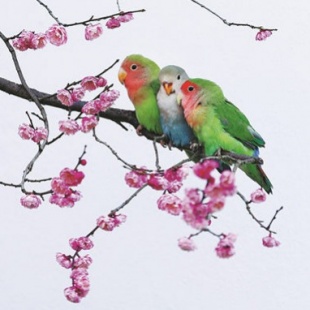A time of thunder and renewal


For 25-year-old Wu Jiajie in Foshan, South China's Guangdong province, Jingzhe is a good time to observe insects.
Working close to a wetland park, he often goes there to observe insects, especially during nights when many insects and animals come out to hunt.
"Jingzhe is a turning point. Perhaps it's because rainfall increases and temperature rises, and it's a better time for insects' activities. I can see more insects as well as other small animals like snakes and frogs since Jingzhe," he says.
"We don't have many customs here. For me, Jingzhe means the insect season has arrived, so I observe nature more frequently," he says.
On the night of Jingzhe in 2021, Wu took photos of cockchafers, crickets, the larva of Papilio polytes, millipedes, toads, frogs, semi-slugs and the harmful red imported fire ant. He happened to catch the moment when a cockchafer climbed out of the soil.
A fan of Pokemon, Wu started nature observation after graduating from senior middle school. For him, to discover a new insect in nature is like collecting a Pokemon, recording unknown species and discovering the mystery of the world, he writes in one of his blogs.
"In some sense, I don't just like insects, but all the creatures in the world," he writes.
In another blog, he recorded his observation of some wild grass on the roof of his home.
"Many people might think these are obscure wild grass, so why bother to notice and observe them?" he writes.
"But through observation we know that there are so many different plants living around us and even the most common plant bears its unique flowers and fruits. So we get to know of another side of the millions of creatures around us," he writes.
"Just like a quote that I came across before: natural observation is most useless, so the happiness it brings about is the purest," he writes.





































